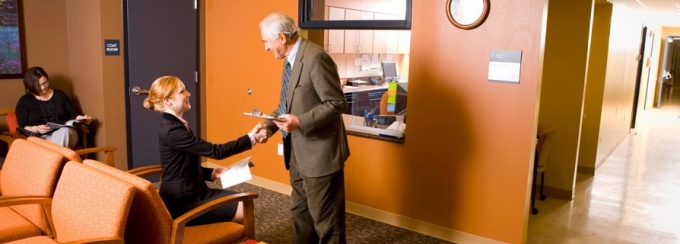Division of Community Psychiatry

Individuals with psychiatric conditions frequently interact with multiple medical, social and legal systems. The Division of Community Psychiatry works to identify and address gaps where these systems interface with another.
Even in communities with substantial resources for individuals with psychiatric conditions, different agencies’ actions and policies may interfere with one another, or they may not be clear or accessible enough for the people who need them.
For example, a juvenile patient in acute treatment for psychiatric disturbances may have recurrent but erratic involvement with the legal system, which interferes with long-term recovery. A family with an autistic child may need to navigate several state agencies to meet their child’s physical, social and mental health needs.
We specialize in fostering these connections. By partnering with a wide variety of agencies we make existing resources more effective and identify new ones, increasing access to timely, appropriate mental health services across the continuum of care.
Education and Training
We provide training and mentoring to satisfy residents’ clinical requirement in community psychiatry through rotations in outpatient and emergency care. Under our guidance, residents work in specialized settings, such as group homes and schools, learn to tailor care to patients’ ethnic and socioeconomic backgrounds and help patients understand and use available community resources.
Research
We lead two pilot projects in the adult and juvenile justice systems.
We have identified a cohort of individuals in the adult system of care who have frequent contact with the county holding center and psychiatric emergency services. Within that group, we have focused on individuals whose discontinuity in psychiatric care is in part responsible for these visits, and we are creating individualized, team-based treatment plans to address the problem.
In the juvenile justice system, our division has initiated a project to coordinate case-based conferences involving in-home mental health services providers, probation officers, detention staff and other professionals. We strive to help providers resolve issues early in the process, without the time or expense of a court-ordered evaluation. This in turn prevents children from penetrating more deeply into the psychiatric and/or legal systems.
Clinical Practice
Our work focuses on psychiatric care for four primary populations:
- children and adolescents in the juvenile justice system
- children and adolescents with autism
- adults caught between court and emergency room settings
- adults with one or more serious medical conditions and a serious psychiatric condition
We currently provide administrative oversight, consultation or direct clinical care in the following settings:
- the adolescent service at Erie County Medical Center (including child and adolescent psychiatric care within CPEP, the adolescent unit and transitional outpatient care)
- child and adolescent psychiatric services at Mid-Erie Counseling and Treatment Services
- the Erie County Youth Detention Center and the Erie County Holding Center (supervision of psychiatric care), and the Police Mental Health Task Force (consultation)
- Family Voices Network, Spectrum C.A.R.E.S. program, Erie County’s Safety Net for Youth and Crisis Services Police Enhancement Project (administrative support and consultation)
- the Committee for Autism and Mental Health Advocacy
As a result of collaborative initiatives our division has spearheaded, our area how has a well-coordinated continuum of psychiatric resources for children and adolescents, from emergency room visits through social services and state programs down to basic outpatient care.
Contact Us
Division of Community Psychiatry
Erie County Medical Center
462 Grider St.
Buffalo, NY 14215
Phone: 716-406-7663
Email: psmartin@buffalo.edu
Division Chief, Community Psychiatry

University at Buffalo - Psychiatry Erie County Medical Center 462 Grider St. Rm 1168 Buffalo, NY 14215
Phone: 716-898-4857
Email: psmartin@buffalo.edu